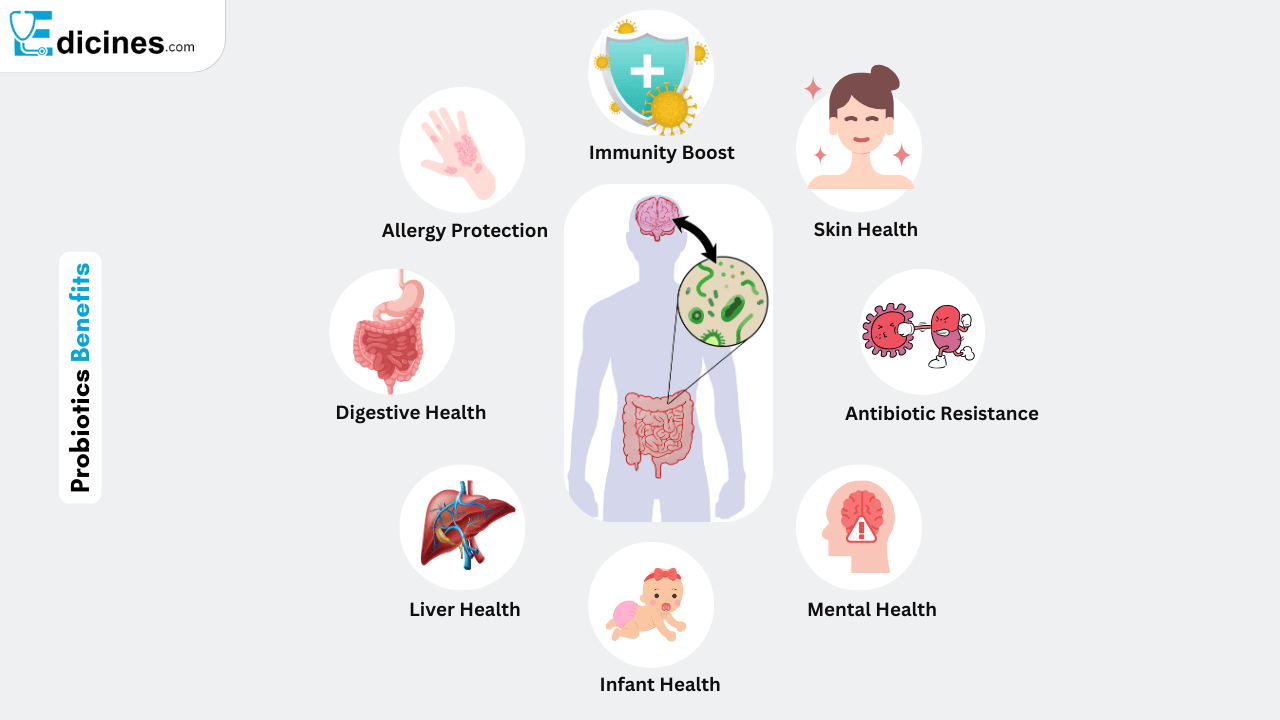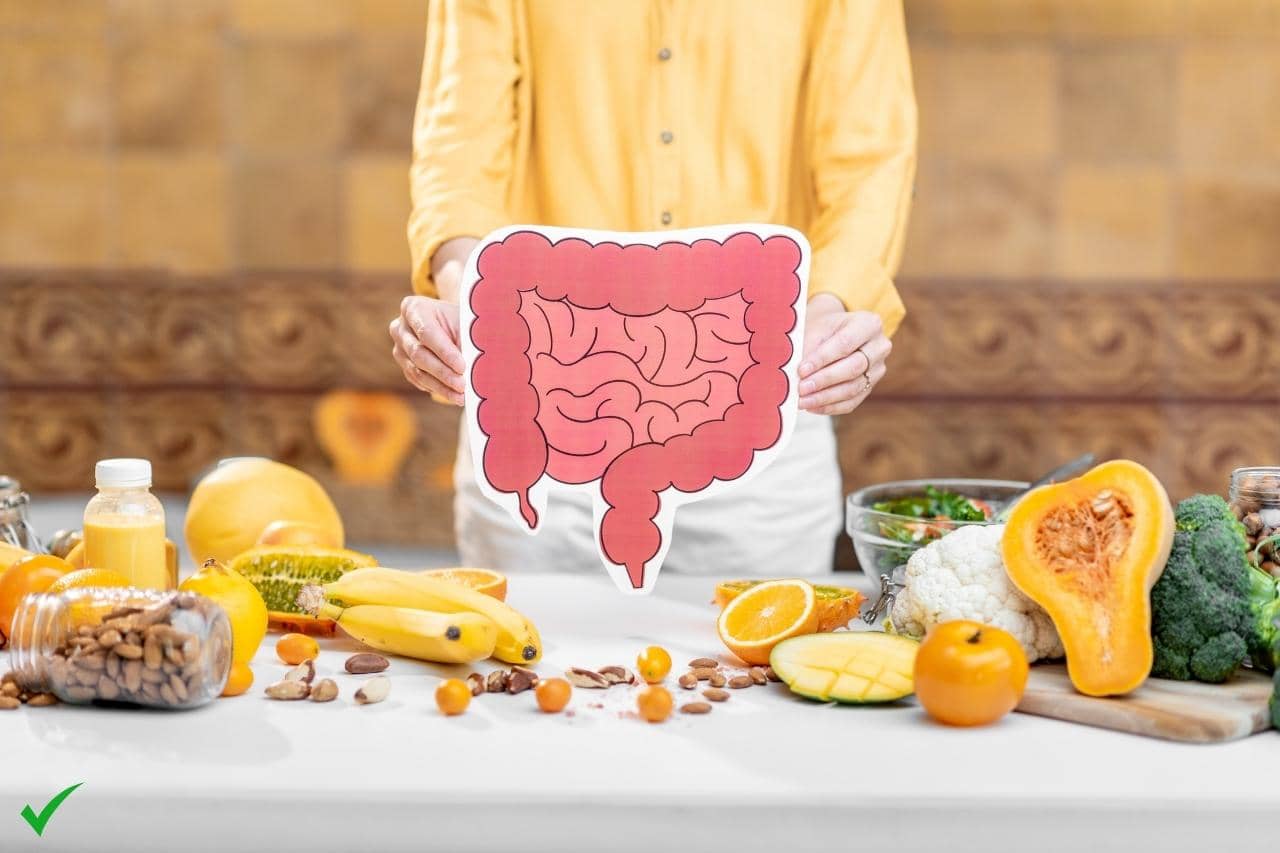The importance of preserving our gut health cannot be emphasized enough. It helps in digestion and influences the immune system, mood, and to some extent mental health. A healthy, functional digestive system is vital for effective nutrient absorption, disease prevention, and even in emotional balance Probiotics are one of the major contributors to attaining such as wellness. A probiotic is a substance, often found in food, that contains live bacteria or yeast which is supposed to have health benefits if the right amount is applied.
This article covers the different aspects of wellbeing enhancement such as the importance of gut health, how it’s maintained, the role of probiotics and other such wellness strategies available to them.
What is Gut Health?
Gastrointestinal health is the most comprehensive state of balance of the beneficial bacteria and other microorganisms found within the intestines. These are referred to as the gut microbiome and are critical in maintaining health in a person. A properly functioning and healthy gut is essential in digestion, nutrient absorption and protection of the body against pathogens.
Considering the other dynamics, there is a well-established connection between gut health and cognitive function. As the saying goes, “The gut and the brain are connected,” meaning a healthy gut can enhance mental clarity. Recent studies in psychology have shown that a healthy gut can positively impact cognitive abilities.
An unhealthy gut can lead to various health problems, including digestive disorders and mental health issues like anxiety or depression.
The Gut Microbiome
Imagine a bustling city within your body, teeming with life. This city is your gut microbiome, composed of a diverse and numerous population of bacteria, fungi, and other tiny organisms. These organisms play a crucial role in your overall health.
They help break down food, produce essential vitamins, and even protect you from diseases. For instance, studies have shown that a healthy gut microbiome can help prevent certain types of infections and improve your immune system.
Benefits of Probiotics for Gut Health

Probiotics and Digestion
The term probiotics refers to organisms that facilitate food intake and nutrients utilization. Once again, these helpful microorganisms relieve digestive issues such as feeling full, too much gassiness, and constipation by balancing the gut bacteria. This balance also helps to reduce the symptoms of IBS and other ailments associated with the gut.
Boosting Your Immunity
The gut is said to contain a substantial component of the body’s immune system. Probiotics improve the immune system by providing support to the gut protective structures. A healthy gut flora prevents the invasions of pathological bacteria while assisting the body to combat infections.
Restoring Gut Balance
Women suffering from these kinds of diseases have lowered levels of probiotics in their bodies. Good and bad bacteria work in harmony to ensure that a person remains healthy. Poor eating habits, high levels of tension, taking medication, for example, antibiotics, and exaggerating illnesses, can all affect this harmony. Such probiotics supplementation helps to restore this healthy balance and in turn, protects from diseases of the digestive system as well as dangers of recurrent illness.
Mental Health and Gut Health
It has been reported in certain studies the existence of a link between gut health and psychology or the gut-brain axis. Since a majority of these neurotransmitters like serotonin are produced in the gut, probiotics enhance mental health. As such, probiotics are helpful in the management of anxiety and depression.
Which Probiotic Supplement Is Right for You?
When selecting probiotics supplement, consider the following factors:
Strain Diversity: It helps if the product contains supplements containing bacteria that have multiple strains to target different areas of gut health.
CFU Count: Colony forming unit (CFU) counts indicate how many live bacteria are present in a probiotic. For health purposes, a probiotic containing about 10 to 50 billion CFUs per serving is ideal.
Quality: Choose products that display third-party validation for their claims of strength, safety, and effectiveness.
Recommended Dosages: The appropriate dosage of probiotics can vary depending on your specific health goals. For general gut health maintenance, most people will benefit from taking 10-15 billion colony-forming units (CFUs) daily. However, individuals recovering from infections or antibiotic use may require higher dosages.
Possible Side Effects: Probiotics are generally safe, but some people may experience mild side effects like bloating or gas during the initial days of use. If you have any underlying health conditions or are taking medications, it’s essential to consult with a healthcare professional before starting probiotics.
Also Read: Low Glycemic Index Foods to Include in Your Diet (+ Weekly Meal Plan)
Incorporating Probiotics into Your Diet
1. Probiotic-Rich Foods:
Fermented foods are excellent sources of probiotics. Consider adding these to your diet:
- Yogurt
- Kefir
- Sauerkraut
- Kimchi
- Miso paste
2. Probiotic Supplements:
If you struggle to incorporate enough probiotic-rich foods, supplements can be a convenient option. They’re especially helpful for restoring gut balance after illness, stress, or antibiotic use.
3. The Power of Prebiotics:
To maximize the benefits of probiotics, pair them with prebiotic foods like bananas, onions, garlic, and whole grains. Prebiotics act as fuel for probiotics, helping them thrive in your gut.














